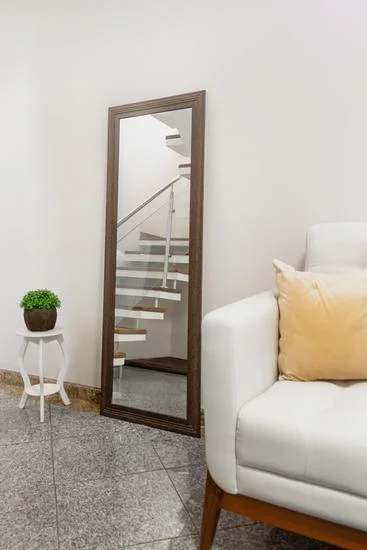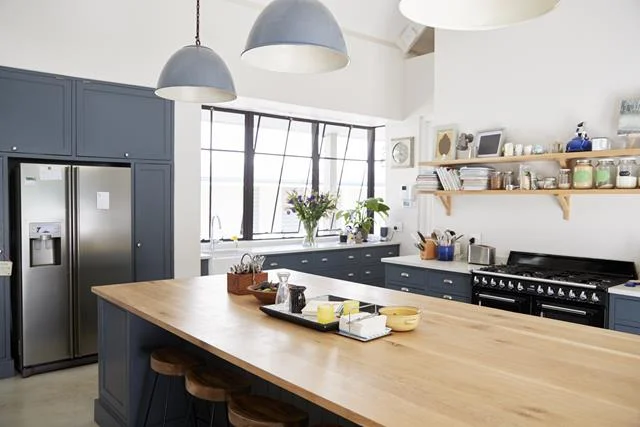As believers, we strive to live our lives in accordance with the teachings of the Bible. We seek guidance on various aspects of life, including how we decorate our homes. Home decoration is more than just a matter of personal taste and style; it can also reflect our faith and values. In this article, we will explore the biblical perspective on home decoration and discover what the Bible says about creating a sacred space within our homes.
In order to understand God’s design for the home, it is important to recognize the significance of creating a sacred space. Our homes should be more than just a shelter; they should be places where we can experience peace, love, and unity with God and our loved ones. As we delve into these biblical teachings, we will gain insight into how to transform our homes into sanctuaries that reflect His presence.
Additionally, finding a harmonious approach to home decoration is essential. The Bible teaches us about the importance of balance in all aspects of life, including how we decorate our homes. By embracing beauty and simplicity in our home decor choices, we can create spaces that are visually appealing while avoiding excessiveness or materialism.
In exploring the biblical perspective on home decoration, we will also discuss incorporating biblical themes and imagery into our decor. By utilizing symbols that hold deep meaning from scripture, we can infuse our homes with messages of faith and purpose.
Join us as we embark on this journey to uncover what the Bible says about decorating your home. Through this exploration, we hope to provide inspiration and guidance for creating a God-honoring home that reflects His love, beauty, and truth.
Understanding God’s Design for the Home
In the Bible, the notion of home is significant. It is not merely a physical structure, but a place where individuals and families dwell, worship, and seek solace. Understanding God’s design for the home is crucial in creating a sacred space that fosters spiritual growth and connection. In this section, we will explore the biblical perspective on the importance of creating a sacred space within our homes.
The Significance of Sacred Spaces
Throughout the Bible, sacred spaces play an essential role in connecting people with God. From the Tabernacle in the Old Testament to the early Christian house churches mentioned in the New Testament, these places were consecrated to honor God’s presence and facilitate worship. Similarly, our homes can function as sacred spaces where we encounter God through prayer, reflection, and fellowship.
As believers, we are called to cultivate an environment that reflects our reverence for God within our homes. This can be achieved by establishing designated areas for prayer or devotionals where we intentionally create an atmosphere conducive to spirituality. By setting apart a specific area for such activities, we signal to ourselves and others that our homes are sanctified spaces designed for divine encounters.
Honoring God through Design Choices
When it comes to understanding God’s design for our home decor choices, it is essential to consider how they align with biblical principles. The Bible encourages us to prioritize qualities such as orderliness (1 Corinthians 14:40), beauty (Psalm 27:4), and hospitality (1 Peter 4:9) when decorating our living spaces.
Creating a sacred space involves intentional decision-making about colors, textures, objects, and overall aesthetics based on biblical principles. For example, incorporating natural elements like plants can remind us of God’s creation and His provision for us; choosing artwork that reflects biblical themes can serve as visual reminders of faith; arranging furniture in a way that promotes conversation and fellowship can foster hospitality and community.
By thoughtfully integrating these principles into our home decor, we honor God and invite His presence into our sacred space. Understanding God’s design for the home enables us to create an environment that reflects our faith and values while fostering spiritual growth and connection within our families.
The Art of Balance
Decorating our homes can be a creative and enjoyable process, but it is important to find a harmonious balance when it comes to home decoration. The Bible offers guidance on how we can bring balance and harmony into the way we decorate our homes.
Firstly, the Bible encourages us to consider the function of our home and prioritize its purpose as a sacred space. In 1 Corinthians 3:16-17, it says, “Do you not know that you are God’s temple and that God’s Spirit dwells in you? If anyone destroys God’s temple, God will destroy him.
For God’s temple is holy, and you are that temple.” This reminds us that our homes should reflect this holiness and be a place where we can worship and serve God.
Secondly, finding balance in home decoration means not becoming consumed by worldly desires for extravagant things. Proverbs 27:20 warns us against this saying, “Death and Destruction are never satisfied, and neither are human eyes.” It’s easy to fall into the trap of wanting more and more things to impress others or elevate our status. However, true beauty is found in simplicity.
To achieve a harmonious approach to decorating your home according to biblical principles, here are some practical tips:
- Focus on decluttering and creating a clean space. Minimalism allows room for serenity and calmness.
- Prioritize functionality over fashion – choose furniture and decorations that serve a purpose rather than just being aesthetically pleasing.
- Incorporate natural elements like plants or flowers which remind us of the beauty of God’s creation.
- Consider displaying verses or images with biblical themes as reminders of faith throughout your home.
- Remember that hospitality is an important aspect of Christian living – create spaces in your home that are inviting for guests.
By seeking balance in our approach to home decoration and following these biblical principles, we can cultivate homes that are not only aesthetically pleasing but also spiritually uplifting.
Beauty and Simplicity
In today’s world, the concept of minimalism has gained popularity as people seek to declutter their lives and find peace in simplicity. Minimalism is not only a contemporary trend but also finds its roots in the Bible. The Bible encourages us to embrace beauty and simplicity in our home decor, reminding us that true joy does not come from earthly possessions but from our relationship with God.
The biblical perspective on minimalism can be found in numerous passages throughout the Bible. One such example is found in Matthew 6:19-21, where Jesus teaches about storing treasures in heaven instead of on earth. This teaches us to focus on what truly matters and avoid excessive material possessions. Embracing minimalism allows us to prioritize our relationship with God and cultivate a heart of contentment.
Moreover, simplicity is often associated with humility, another virtue emphasized in the Bible. In Proverbs 15:33, it says, “The fear of the Lord is instruction in wisdom, and humility comes before honor.” By embracing minimalism in our home decor, we can practice humility by recognizing that material possessions do not define our worth or bring lasting happiness. Instead, we can focus on what truly matters – building relationships with others and growing closer to God.
| Key Points | Relevant Scripture |
|---|---|
| Embracing minimalism prioritizes our relationship with God | Matthew 6:19-21 |
| Simplicity aligns with the virtue of humility | Proverbs 15:33 |
| Focusing on what truly matters brings contentment | Philippians 4:11-13 |
As we embrace minimalism in our home decor, we create a space that reflects simplicity and tranquility. With fewer material possessions, we can appreciate the beauty of what we have without being overwhelmed by excess. The Bible reminds us in Philippians 4:11-13 that true contentment comes from relying on God’s strength rather than material abundance.
The Power of Symbols
Symbols hold significant meaning in various aspects of life, and home decor is no exception. Incorporating biblical themes and imagery into your home decor can be a powerful way to express your faith and create an atmosphere that reflects your belief in God. The use of symbols can not only visually enhance your space but also provide a constant reminder of spiritual truths and values.
One popular symbol often seen in biblical-themed home decor is the cross. The cross represents the ultimate sacrifice made by Jesus Christ on behalf of humanity. It serves as a powerful reminder of God’s love, grace, and redemption. It can be displayed in various forms, such as wall hangings or sculptures, to bring focus to the central message of Christianity.
Another symbol commonly found in biblical-themed home decor is the dove, which signifies peace and the presence of the Holy Spirit. Often associated with Noah’s Ark and Jesus’ baptism, the dove serves as a reminder of God’s faithfulness, protection, and guidance. Including images or figurines of doves in your home can help create an environment that promotes inner peace and spiritual reflection.
In addition to these symbols, biblical verses or quotes displayed as wall art or on decorative plaques can play a significant role in incorporating biblical themes into your home decor. Selecting verses that resonate with you personally can serve as daily affirmations of God’s promises and encouragement. These words can inspire you and those who enter your home to live out their faith more intentionally.
By incorporating biblical themes and imagery into your home decor through symbols like the cross, dove, or verses, you are creating a visual representation of your faith. These symbols not only add beauty to your space but also provide daily reminders of God’s love, grace, peace, and promises. They help cultivate an environment that fosters spiritual growth and allows you to share your beliefs with others who may enter your home.
Cultivating a Welcoming Atmosphere
Hospitality is a cherished value in many cultures, and it holds a special place in the Bible as well. The Bible repeatedly emphasizes the importance of welcoming others into our homes and treating them with kindness and generosity. As we think about home decoration from a biblical perspective, it is essential to consider how our decor choices can contribute to creating a warm and inviting atmosphere for our guests.
The Power of Warm Colors
Color has the ability to evoke emotions, and choosing warm colors for your home can create a cozy and welcoming atmosphere. In the Bible, various warm tones are associated with feelings of comfort, joy, and abundance. For example, earthy hues like terracotta or mustard yellow can bring warmth into your space. Shades of red are also traditionally linked to hospitality and are often seen expressing love and good fortune.
Creating Comfortable Spaces
One way to cultivate hospitality in your home is by prioritizing comfort when selecting furniture and arranging your living spaces. Consider providing ample seating options so that your guests feel at ease during their visit. Plush cushions, soft throws, and luxurious fabrics can all contribute to the overall sense of comfort in your home. Additionally, incorporating natural elements such as plants or fresh flowers can enhance the feeling of serenity and make guests feel more connected to nature.
The Importance of Table Decor
In many biblical traditions, sharing a meal with others is seen as an act of communion and fellowship. Therefore, paying attention to table decor is an essential aspect of cultivating hospitality within our homes. Thoughtfully set tables with beautiful linens, candles, or floral arrangements can elevate the dining experience for both you and your guests. Furthermore, taking time to prepare delicious meals with love adds an extra layer of warmth to any gathering.
Cultivating a welcoming atmosphere through home decoration aligns with biblical teachings on hospitality. By choosing warm colors, creating comfortable spaces, and paying attention to table decor, we can create an environment that not only reflects our personal style but also invites others to experience the love and warmth of our home.
Avoiding Materialism
Decorating our homes can be a fulfilling and creative endeavor, but it’s important to navigate the fine line between decorating and coveting. The Bible provides guidance on how we can avoid materialism and maintain a healthy perspective when it comes to home decoration.
Materialism is the excessive desire for wealth and possessions, which can lead to discontentment and greed. In the context of home decoration, materialism manifests as an insatiable desire to acquire more and more things for our homes, often driven by societal pressure or comparison with others. However, the Bible encourages believers to prioritize spiritual values over worldly possessions.
One key principle in avoiding materialism in home decoration is contentment. The Apostle Paul writes in Philippians 4:11-12, “I have learned to be content whatever the circumstances I have learned the secret of being content in any and every situation.”
Applying this principle to home decoration means being satisfied with what we already have rather than constantly seeking new items to fill our spaces. This doesn’t mean that we shouldn’t decorate or upgrade, but rather that our focus should be on cultivating gratitude for what we already possess.
Another aspect of avoiding materialism is stewardship. As Christians, we are called to be good stewards of the resources God has entrusted us with. This includes using our finances wisely when it comes to home decoration. It’s important to create a budget and stick to it, avoiding impulsive purchases that may contribute to unnecessary clutter or debt. Making intentional choices about what we bring into our homes can help prevent materialistic tendencies from taking hold.
In summary, avoiding materialism in home decoration involves cultivating contentment, practicing stewardship, and prioritizing spiritual values over worldly possessions. By focusing on these principles, we can find joy in creating a beautiful and inviting space without crossing the line into covetousness.
| Principles | How to Apply |
|---|---|
| Contentment | Focus on gratitude for what you already have, avoid seeking constant upgrades or comparisons with others. |
| Stewardship | Create a budget, make intentional choices about what to bring into your home, avoid impulsive purchases. |
| Spiritual Values | Prioritize spiritual growth and well-being over acquiring material possessions, seek God’s guidance in decision-making. |
Honoring God with Your Resources
Decorating your home can be a wonderful way to create a space that reflects your personality and brings beauty into your everyday life. However, it is important to approach home decoration with a mindset of honoring God and using your resources wisely. In this section, we will explore some budget-friendly tips for biblical home decoration.
- Prioritize Functional Items: When decorating on a budget, it is crucial to prioritize functional items over purely decorative ones. Focus on investing in essential furniture pieces that serve a purpose and will last for years to come. Consider purchasing second-hand or repurposed furniture to save money while still maintaining quality.
- DIY and Upcycling Projects: Get creative and embrace do-it-yourself (DIY) projects for your home decor. The Bible encourages us to be good stewards of the resources God has given us, and one way to do this is by repurposing old items instead of buying new ones. Explore DIY tutorials online or visit thrift stores and garage sales for inspiration and materials.
- Embrace Simplicity: Minimalism is not only a contemporary design trend but also aligns with biblical principles of contentment and detachment from material possessions. Instead of filling your home with unnecessary clutter, choose a few key pieces that have meaning and bring joy. Focus on creating an atmosphere of peace and serenity through simple decor choices like neutral colors, natural materials, and clean lines.
Remember, the goal of biblical home decoration is not perfection or impressing others but rather creating an environment that reflects your values and allows you to develop spiritually. By being mindful with how you spend your resources, embracing simplicity, and finding joy in DIY projects, you can honor God in the way you decorate your home without breaking the bank.
The Role of Prayers and Blessings
When it comes to decorating your home, the role of prayers and blessings should not be underestimated. Infusing your home decor with spirituality can create a sacred and meaningful atmosphere that honors God and invites His presence into your living space.
One way to infuse spirituality into your home decor is through the use of religious symbols and imagery. Incorporating items such as crosses, religious artwork, or statues can serve as a powerful reminder of your faith and help set the tone for spiritual reflection and worship in your home. Whether you choose to display these items prominently or subtly integrate them into your overall decor, their presence can have a profound impact on creating a spiritually uplifting environment.
In addition to physical objects, prayers and blessings can also play a significant role in infusing spirituality into your home decor. Taking the time to dedicate each room in your home through prayer can invite God’s presence into those spaces and sanctify them for His purposes.
You may consider gathering with your family or loved ones to pray over each room individually or as one collective act of consecration. This practice not only honors God but also creates a sense of unity and purpose within your household.
Conclusion
In conclusion, the Bible offers valuable insights and guidance for creating a God-honoring home through decoration. It emphasizes the importance of understanding God’s design for the home and creating a sacred space that fosters spiritual growth and connection. The biblical perspective on home decoration encourages us to find balance, embracing beauty and simplicity while avoiding materialism and coveting.
One key aspect of creating a God-honoring home is incorporating biblical themes and imagery into our decor. By using symbols that remind us of God’s love, grace, and teachings, we can infuse our living spaces with a deeper sense of spirituality. Whether it be through displaying verses of scripture, religious artwork, or symbolic objects, these elements can serve as constant reminders of our faith and values.
Additionally, hospitality plays a significant role in biblical home decoration. Cultivating an atmosphere of warmth, welcome, and generosity not only reflects biblical teachings but also creates an environment where relationships can flourish. By using our resources wisely and budget-friendly tips for decorations, we can honor God with our choices and create an inviting space that brings joy to ourselves and others.
Lastly, prayer is a powerful tool in infusing our home decor with spirituality. Taking time to consecrate our living spaces through prayer and blessings helps us acknowledge God’s presence in all aspects of our lives. By seeking His guidance in decision-making regarding home decoration, we demonstrate trust in His plans for us.
Overall, finding inspiration from the Bible to create a God-honoring home involves understanding God’s design for the home, striking a harmonious balance in decoration choices, embracing minimalism while still appreciating beauty, incorporating biblical themes into decor, fostering hospitality with budget-friendly choices, and infusing our decorations with prayers and blessings. By following these principles found within scripture, we can transform our living spaces into sanctuaries that reflect our faith and bring glory to God.
Frequently Asked Questions
Where in the Bible does it say to beautify the house of God?
The Bible encourages believers to beautify the house of God in various ways, but there isn’t a specific verse that explicitly says so. However, several passages highlight the importance of treating God’s dwelling place with reverence and respect. For instance, Psalm 96:6 states, “Splendor and majesty are before him; strength and beauty are in his sanctuary.” This verse emphasizes the importance of creating a beautiful ambience within God’s sanctuary as an act of honor and worship.
Additionally, 1 Chronicles 16:29 urges worshippers to “ascribe to the Lord the glory due his name; bring an offering and come before him! Worship the Lord in the splendor of holiness.” These verses imply that adorning the house of God with beauty is a meaningful way to demonstrate our love for Him.
What does the Bible have to say about the home?
The Bible offers guidance on various aspects of home life, including relationships and responsibilities within the household. For example, Ephesians 5:22-33 provides instructions for husbands, wives, and children in a marital context.
It teaches that spouses should submit to one another out of reverence for Christ, husbands should love their wives sacrificially like Christ loved the church, wives should respect their husbands, and children should obey their parents. This passage highlights the importance of mutual respect, sacrificial love, and unity within family dynamics according to biblical principles.
What does the Bible say about a beautiful home?
While there is no specific verse that directly addresses a beautiful home as we might think aesthetically pleasing or extravagant in material possessions, the Bible does convey wisdom about cultivating a beautiful atmosphere within our homes. Proverbs 24:3-4 advises individuals by saying, “By wisdom a house is built, and through understanding it is established; through knowledge its rooms are filled with rare and beautiful treasures.” This passage illustrates that a truly beautiful home is not merely defined by physical adornments but rather by wisdom, understanding,and knowledge filling its rooms.
In other words, a beautiful home should be characterized by virtues such as love, kindness, and grace that create a welcoming atmosphere for its inhabitants and visitors. Ultimately, the Bible emphasizes prioritizing inner beauty over external appearances when it comes to our homes.

Hello, lovely readers! I’m Sheila Collins, and I’m delighted to be your trusted guide on this exciting journey of home improvement, design, and lifestyle. As the founder and editor-in-chief of Home Guide Blog, I’m passionate about all things related to homes, and I’m here to share my knowledge, experiences, and insights with you.





